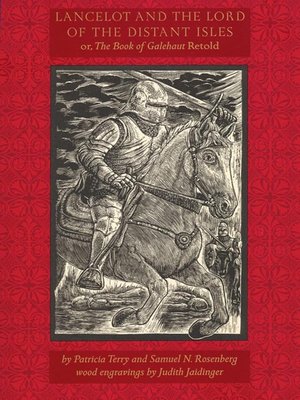Lancelot and the Lord of the Distant Isles
ebook ∣ Or, The Book of Galehaut Retold
By Patricia Terry

Sign up to save your library
With an OverDrive account, you can save your favorite libraries for at-a-glance information about availability. Find out more about OverDrive accounts.
Find this title in Libby, the library reading app by OverDrive.



Search for a digital library with this title
Title found at these libraries:
| Loading... |
The deeply resonant love story of Sir Lancelot and King Arthur's wife, Queen Guenevere, has had enduring appeal ever since it was invented in the 12th-century by the French writer Chrétien de Troyes. The protagonists became a model of ill-fated adulterers whose irresistible love led not only themselves but their entire world to perdition. The tale has been told and retold over the years in many languages and forms; the most provocative and elaborate version is in the immense suite of early-13th-century French narratives collectively called the Lancelot-Grail or Arthurian Vulgate Cycle. Related here is the whole wondrous, adventure-filled, mythic history of Arthur and his chivalric kingdom.
The anonymous author of the massive section devoted to Lancelot expanded the triangle Arthur-Guenevere-Lancelot into a rectangle, adding a figure named Galehaut, Lord of the Distant Isles, a powerful political and military foe to Arthur and a rival to Guenevere for the love of Lancelot. It is an extraordinary tale, this overlapping love story, which is recounted with an understanding of human desires and aspirations unprecedented in its depth and richness. For love of Lancelot, Galehaut surrenders his political ambitions, voluntarily submitting to the rule of Arthur; the same love leads him to facilitate the rapprochement of Lancelot and the Queen. The invincible Lord of the Distant Isles, who had seemed destined to conquer the world, becomes a paragon of love-inspired self-sacrifice.
Whether for political reasons or out of aversion to the homoerotic, later retellings of the Lancelot story, in whatever language, show little or no interest in Galehaut. This is especially true of Malory's great English treatment of the Arthurian legend in the 15th century, in which the "high prince" Galehaut appears but only peripherally and with no significant tie to Lancelot.






